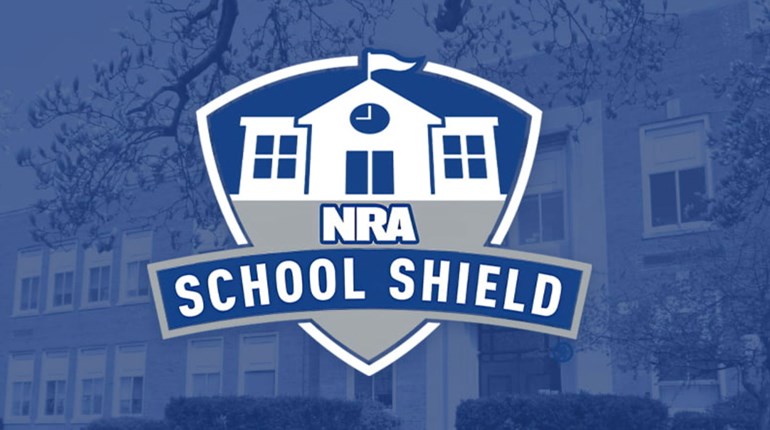
Women are socially conditioned to be accommodating, amenable, and generally nice. Many of us can relate to the experience of being labeled “bossy” when a man who acts the same way is labeled “a leader.” That’s because society has certain expectations as to how bold and direct a woman is “supposed to” be. We’re often expected to be people-pleasers and peacekeepers, sometimes at our own expense. I’m not trying to get into gender politics here, but the fact of the matter is, you might have some deeply ingrained conditioning that prioritizes niceness over most everything else.
That’s usually not a bad thing. Being nice and polite makes you a pleasant person to be around, of course, and heaven knows the world could use more kindness. However, that tendency toward niceness can work against you in some circumstances. There will always be people who will take advantage of it. In the worst-case scenario, your nice-girl syndrome can actually make you vulnerable to a criminal who might be sizing you up as a potential victim.
If you sense you’re in that type of situation, it’s time to turn nice-girl syndrome off completely and dial up your command voice. Here are a few nice-girl things you might have been conditioned to do that you don’t even realize, and how to overcome them.
1. You Shouldn’t Make a Scene in Public
From the first time we pitched a fit in the grocery store as toddlers, our mothers have been teaching us that making a spectacle of ourselves in public is embarrassing and should be avoided at all costs. Yes, it’s true that you’re probably better off saving your drama, arguments and meltdowns for a more private location, but there is definitely a time to break this rule. If you’re confronted by someone who gives you the creeps, by all means, forget about keeping a low profile.
Someone who wants to violate normal social boundaries (not even necessarily criminally) is counting on you to remain polite and calm while they see how far they can push you. If you shout, “Hey, leave me alone!” in the middle of the grocery store, he or she is almost certainly going to shy away from the attention you’ve drawn to them and back off. Make a scene if you have to!
2. It’s Impolite to Refuse an Offer of Help
Someone offering to help you carry your groceries to the car is, in almost all cases, just trying to be helpful. The nice thing to do is to allow them to help or to politely decline, in which case the nice thing for them to do is wish you a good day and go on with their business.
However, if you don’t like the vibe you’re getting, forget about being nice and refuse the offer of help, especially if it puts you in a vulnerable position—like if they’re offering to help carry your groceries from your trunk into your apartment. If things go off-script from there—like they repeatedly insist after you politely decline, or they generally have an aggressive attitude about it, they’ve giving you a clear signal that they mean you harm (criminally or otherwise) and your no-more-nice-girl response is foiling their plans.
3. It’s Rude to Look Someone in the Eye and Say No
Women are expected to say yes when people ask us stuff. If you don’t think this social conditioning is strong, the next time someone asks you to take charge of some event, just look at them with a smile and say, “No, thank you.” That’s it. Watch their face. People are positively taken aback at being told no without an excuse, apology or explanation. If you really want to freak them out, when they ask, “Why not?” reply, “I don’t want to.”
You can simplify your life by learning to say no to all those can-you-help-us-with-this requests, but beyond that, you can also keep yourself safe by embracing the power of “no.” Criminals typically put victims through an interview stage, where they’re trying to decide if you’re a good choice to violate or if they should move on to someone else. They commonly use an excuse to speak to you as a way to start this process—offering to help you with something as previously mentioned, or maybe approaching you to ask for directions, the time or something else. You want to fail this interview, and a simple, like-you-mean-it “no” accompanied by a direct look in their eyes is a great way to communicate that you are not the victim they’re looking for (even if it wasn’t a yes-or-no question). “No” is more effective than “I don’t know” or “I don’t think so” or “Oh, no, thanks, that’s so nice of you, really, but I can definitely manage on my own.”
You’re trying to be firm, not confrontational or challenging, so this doesn’t need to be loud, but it does need to be serious. Just like the director of the Parent Teacher Organization will be startled by your simple “no” when they ask you to take charge of next month’s car wash fundraiser, so might a bad guy be caught off guard by the surprising power of a direct “no” to their “innocent” question.
Be prepared that this often results in the recipient accusing you of being rude or acting insulted that you rebuffed them when they were “just asking a simple question.” So what? Do you really care if a stranger thinks you’re rude? If you do, you might be clinging to your nice girl persona a little too much. Don’t argue or offer excuses or try to explain yourself. Just remove yourself from the situation as quickly as you’re able—you do not want to challenge anyone’s ego by getting into a back-and-forth or allow the interview to continue by holding a discussion. And again, the most normal reaction to being told “no” by a stranger is to back off and leave you alone, with or without the accompanying “how rude” comments as they go. If you tell someone no and they don’t back off, but aggressively persist, they’re telling you that their intentions were likely not good to begin with.
The other way a normal “no” social script goes is for the person being told no to ask you why (so they can shoot down any excuse you offer) or to needle and cajole you into changing your mind. We are conditioned to offer excuses to soften the blow of “no” or to give in to the pressure of someone’s persistence. You’ll have to use your judgement when it comes to someone who presses on after the first “no,” depending on if you know the person, what they’re asking, their tone of voice and the general context of the whole scenario. A second reminder—a firm “I said no”—should solve most innocent situations. If it doesn’t, you might not be in an innocent situation, and it could be Code Orange or even Code Red time.














































